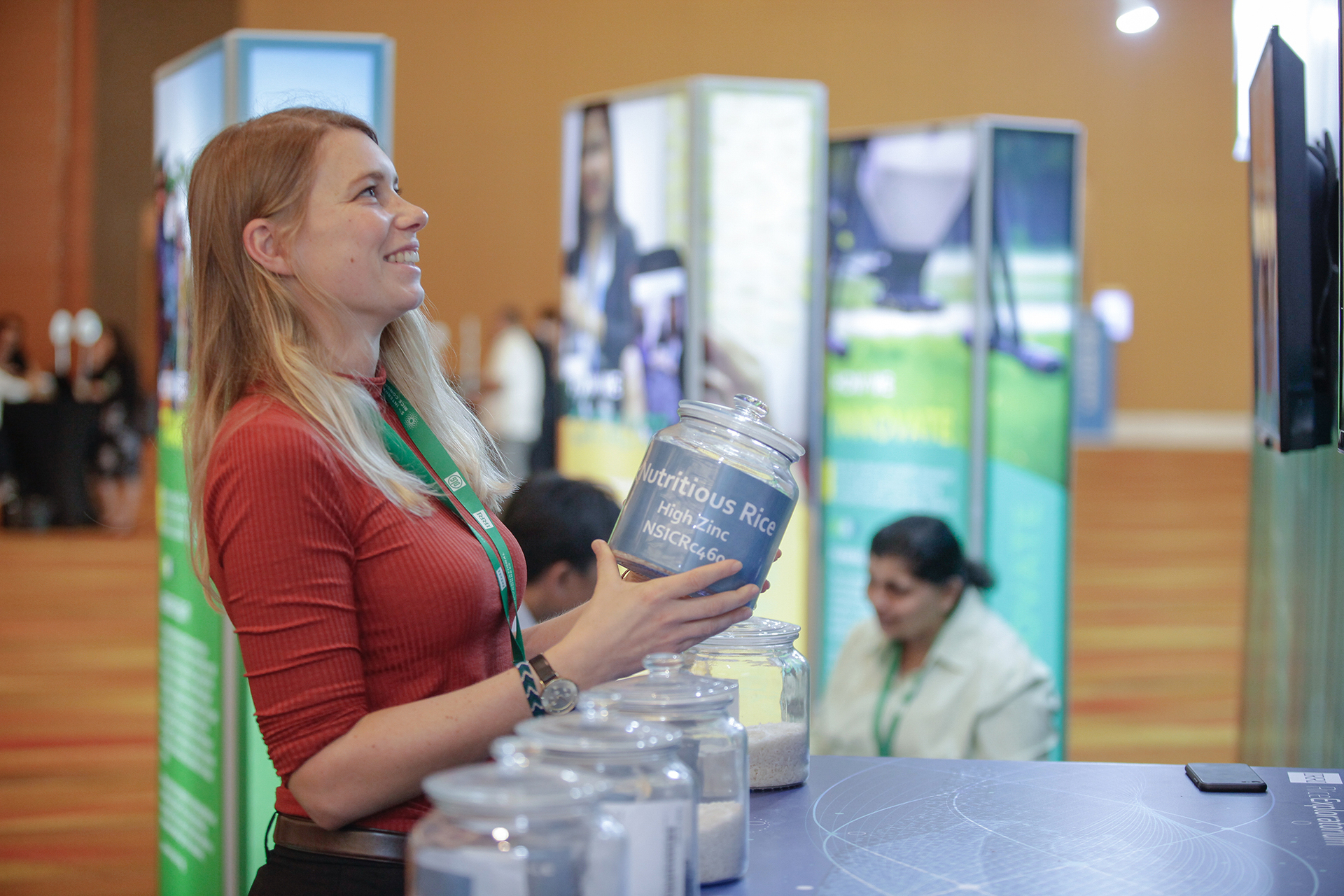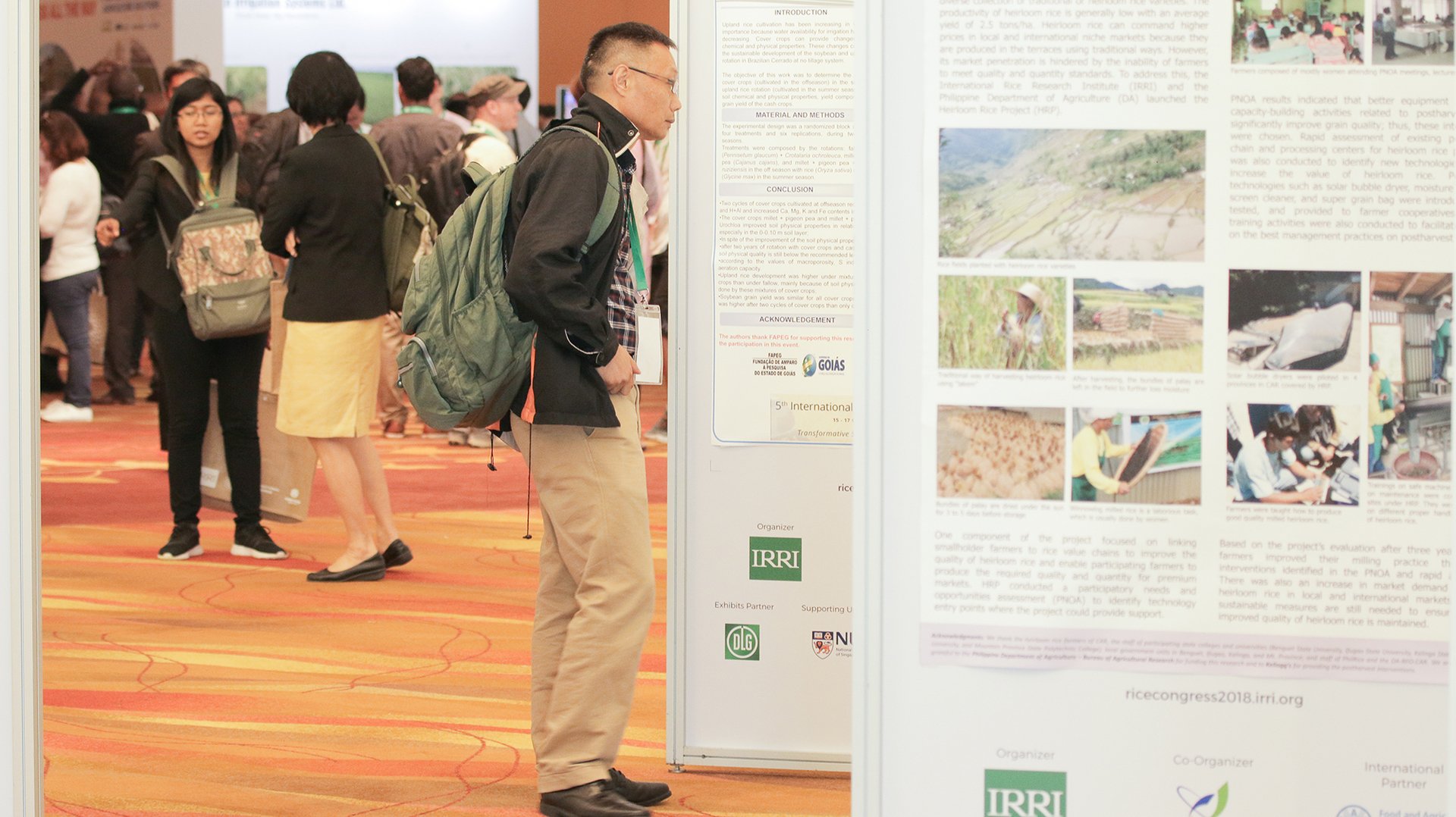June 16, 2025 | 22:45 GMT +7
June 16, 2025 | 22:45 GMT +7
Hotline: 0913.378.918
June 16, 2025 | 22:45 GMT +7
Hotline: 0913.378.918
More than 1,000 presentations, from latest research, market and future trends, including plenary keynote speeches and panel discussions on current challenges in agriculture such as food security and climate change are expected in the upcoming four-day conference – at least 1,500 attendees expected.
A platform for both international research on rice cultivation and practical equipment and input solutions, from seed breeding to post-harvesting, the International Rice Congress (16-19 October, in Manila, Philippines), will deliver more than 1,000 science-based presentations, including eight plenary keynote speeches, specialized conferences and an exclusive 40-company trade show, to at least 1,500 attendees. The Congress also presents more than 500 technical summaries.
The International Rice Congress, which takes place every four years in alternating locations, will bring some 1,500 delegates coming from the entire rice value chain – from researchers and scientists, to farmer groups, non-government organizations, government agencies and private corporations. These delegates hail from across the globe – about 60 countries, including Bangladesh, India, Japan, United States, as well as the Philippines, the host country.

Scientist introduces high-quality rice. Photo: IRC.
“The International Rice Congress 2023 is a perfect opportunity to talk about the most pressing and most crucial issues facing the global rice sector today. International Rice Congress 2023 is a convergence of experts in the fields of genomics, microbiome research, soil health, greenhouse gas emissions, precision farming, artificial intelligence and Big Data, remote sensing tools, among others to present and discuss novel solutions and interventions that are needed now and in the future,” said Bas Bouman, Research Director - Sustainable Impact through Rice-based Systems, IRRI. Bouman is the Chair of the Overall Organizing Committee of IRC 2023.
Meanwhile, eight cross-continental keynote speakers, all thought leaders in the rice sector, will set the tone for the conference. Representing academia, private companies and research institutions in countries across Asia, Africa and the United States, the speakers include Temina Lalani-Shariff of CGIAR; Michael Graham, Bayer Crop Science; and Sally Mackenzie, Pennsylvania State University, among other high-level speakers from research and private sectors, covering regenerative, sustainable rice systems to epigenomics for crop improvement to soil microbiomes as well as governmental requirements.
The more than 100 parallel sessions, each with up to seven international experts, offer in-depth analysis and research updates on technical subjects in the whole rice value chain, from plant breeding and pest, weed, soil and water management to mitigating Greenhouse Gasses (GHG) emissions and climate-risk strategies, as well as analyses of world market and trade restrictions, and particular focus on countries such as Bangladesh and Nepal.
With extensive technical data, graphics and explanatory images, the 512 posters set up in the reception hall as exhibition panels, offer a summary of research work from PhD students, groups of early-career scientists and public and private researchers. The dedicated poster viewing sessions allow the 1,500 participants to identify knowledge relevant to their professional lives. The highly specialized titles include as an example “Precision marker-based breeding for precise transfer of pre-harvest sprouting resistance from Indica donor to the elite Korean temperate japonica varieties.”

12 posters set up in the reception hall as exhibition panels. Photo: IRC.
In between the 1,000 presentation sessions, attendees will be exploring rice equipment and practical solutions at the International Rice Congress trade show, which is organized by the DLG (German Agricultural Society) through its Thailand-based subsidiary, DLG Asia Pacific and the International Rice Research Institute (IRRI).
“The trade show at the International Rice Congress is a practical complement to the many research discussions. At the exhibition area in the reception hall, practitioners, like small and large-scale rice farmers, and experts will be able to discuss what is practically possible in the field right now,” said Katharina Staske, managing director, of DLG Asia Pacific.
Rice transplanters, novel farm input solutions, including new seed varieties, harvest and post-harvest offerings, and logistics are among the exhibited products.
Non-profit and founded on the principles of furthering agricultural knowledge across borders through exhibitions, professional knowledge and networking, the DLG has been a partner of IRRI since 2018.
With its central theme “Accelerating Transformation of Rice-Based Food Systems: From Gene to Globe,” the International Rice Congress 2023 will highlight solutions and innovations that could help address critical issues on agriculture and climate change, food and nutrition security, environmental sustainability, and human and economic development.
The sixth edition of the International Rice Congress takes place at the Philippine International Convention Center (PICC), recently declared a Natural Cultural Treasure for its richness in Filipino history, heritage and culture. Previous International Rice Congress editions have been held in Beijing (2002), New Delhi (2006), Hanoi (2010), Bangkok (2014), and Singapore (2018). This year’s congress will be the first edition held in the Philippines, the headquarters of IRRI.
Translated by Quynh Chi

(VAN) The working delegation from the Ministry of Agriculture and Environment conducted an important trip to the Netherlands to strengthen strategic partnerships and sustainable development in the agricultural sector.

(VAN) The letter ‘A Plea from the Ocean’ not only evokes emotion but also awakens the human conscience to the responsibility of protecting life on Earth.

(VAN) The Department of Agriculture in South Africa has announced the country’s first mass vaccination of poultry to prevent local birds from contracting avian influenza.

(VAN) Establishment of the Mekong Delta Regional Agricultural Linkage Center, aiming for a closed value chain, deep processing, trading platforms, and international market connectivity.

(VAN) Gia Lai province has recently recorded 460 rare species of animals and plants, contributing to forest conservation and biodiversity planning in the region.

(VAN) Ms. Caroline Beresford, New Zealand Ambassador to Vietnam, expressed confidence that agricultural cooperation between Vietnam and New Zealand will develop sustainably, be climate-resilient, and promote gender equality.

(VAN) Vietnam reaffirms its commitment to international cooperation in fostering sustainable and responsible fisheries while ensuring resilient livelihoods for small-scale fishing communities.